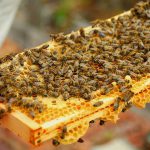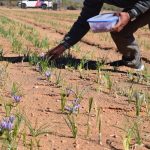
Press release
After engaging with the global experts on climate change, the Carbon Trust, Westfalia Fruit is ensuring compliance with best practice for carbon emissions. Westfalia has achieved Carbon Measured certification from the Carbon Trust for its South African-grown avocados sold in the UK market, and its avocado-derived product range sold in the South African market, including avocado, avocado oil and guacamole products.
At Westfalia Fruit the passion to care and conserve is evident in all aspects of the value chain. Through its commitment to sustainability, Westfalia continues to seek better ways of working to the benefit of our planet. In a world where climate change, environmental degradation and pollution are very real threats to the sustainability of the human race, Westfalia remains totally committed to improving its environmental performance throughout the complete supply chain.
Westfalia recently engaged with the Carbon Trust – a global climate change and sustainability consultancy – to seek support to quantify full value-chain emissions, identify hotspots and gain insight on how these could be reduced for avocados and avocado-derived products. Through this process, Westfalia Fruit achieved Carbon Measured certification from the Carbon Trust for its South African-grown avocados sold in the UK market, and its avocado-derived product range sold in the South African market, including avocado, avocado oil and guacamole products.
“Our aim is to ensure our environmental commitments become an integral part of our day-to-day activities,” says Johnathan Sutton, Westfalia Fruit Group Safety and Environmental Executive. “We are actively seeking ways to continually improve our environmental performance. Reductions in our carbon emissions is one of our main targets”.
“Our business is directly impacted by the complexities of climate change,” says CEO of Westfalia Fruit Group, Alk Brand. “We realise the need for mass action in tackling this challenge. This is why we have chosen to work in collaboration with several like-minded companies, such as the Carbon Trust, in analysing the impact of our products. This is just one of the steps we are taking in our ongoing commitment to the environment and sustainability that should culminate in us becoming ‘lifetime carbon neutral’ by 2049.”
The process evaluated total greenhouse-gas emissions at different life-cycle stages and throughout the value chain for each of the products. This included assessment of agricultural production, ripening, packaging, processing and transportation. Avocados were assessed from their growth from seeds to young trees in the nursery. The transport of trees to the orchard, energy use and pest and disease controls used in the orchards, upstream transport of farm inputs, packaging emissions from material, and emissions from the disposal of packaging and organic waste were all considered.
To qualify to display the Carbon Trust Product Footprint Carbon Measured Label, Westfalia’s carbon footprint was certified from cradle to grave (from business to consumer) according to PAS 2050, a specification for the assessment of the life-cycle greenhouse gas emissions of the analysed products.
Hugh Jones, Managing Director at Carbon Trust Advisory said: “We have worked with Westfalia Fruit on its sustainability agenda since 2019. It’s great to have certified the product carbon footprint of Westfalia’s SA-market products and UK-market avocados to the Carbon Measured label as part of its sustainability journey.”
The certification indicates Westfalia’s compliance with the Product Carbon Footprint Protocol for the specified products.
“The Carbon Measured label, an internationally recognised symbol, allows Westfalia to say with integrity and confidence that we are taking real action to mitigate our environmental impact,” says Sutton.
Sustainability is an unmistakable part of the core values to which Westfalia Fruit is committed – from its farming practices, production processes, water-conservation policies and no-waste approach on its estates, to the welfare and education of staff members and their families. Westfalia’s careful selection of cultivars suited to specific regions and climates, biological pest-control programmes, as well as the reduced use of chemicals, adds to this. Westfalia Fruit recognises that its economic, social and environmental objectives are integrated components towards sustainability and corporate resilience.
Relevant pages on Agribook include “Climate change and global warming” and “Subtropical fruit“.
Photo by Hitoshi Namura on Unsplash







